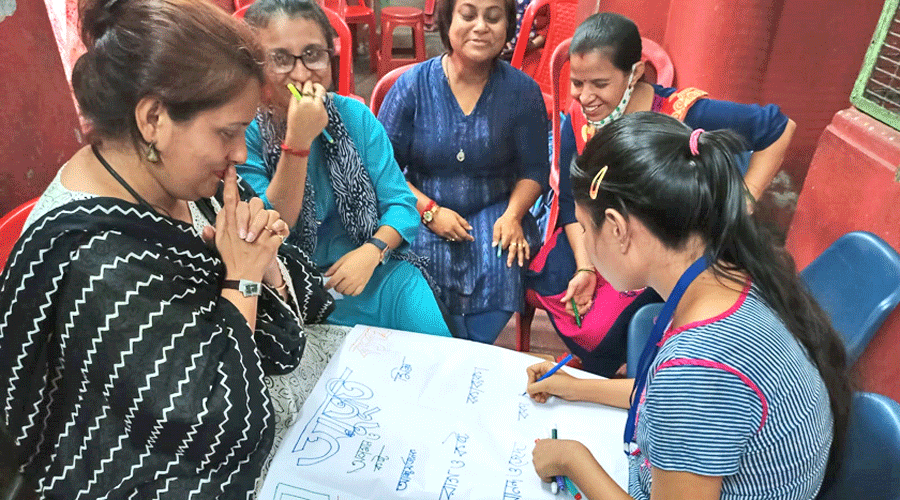Teachers who teach underprivileged children are being given training to not discriminate between students in their classrooms or outside.
Often teachers end up making some statements which leads to gender discrimination, knowingly or unknowingly, said one of the teaching heads in the NGO that is hosting the series of workshops.
Many of the children grow up facing discrimination at home where often whatever little resources families have is kept aside for the boys and the girls are left with the drudgery of every day life.
“Often unknowingly teachers end up saying something that leads to gender discrimination. We want to train our teachers to be more sensitive,” said Ananya Chatterjee, school administrator, Calcutta Rescue.
Statements like “do not cry like girls”, or “why didn’t you finish the homework, because you were washing utensils”, “math is not for girls,” or “you are a boy but cannot solve this sum,” leads to discrimination amongst children.
On the receiving end are not just girls but even boys, because the patriarchal society expects them to behave in certain way, said a teacher.
Calcutta Rescue has conducted four workshops and more are lined up.
“At times, teachers end up making comments to a student that he or she won’t be able to do it. A teacher should not judge their student. The school or the classroom should be a safe space for the children to share what they want,” said Anindita Majumdar of Equidiversity Foundation that has been conducting the workshops with Calcutta Rescue.
Majumdar said the values of equality and inclusion has to be normalised.
“Society, at times, leads to a patriarchal mindset. Teachers have to speak and learn the language of equality and diversity because they are the role models for students,” said Majumdar.
Chatterjee said for them the role of the teacher is important because they have to convince the parents who create that environment of discrimination at home.
“But for them to do that they have to be convinced themselves and be aware of how they are addressing children. There could be some teachers who have some preconceived notions and the workshops will help them to come out of that.”
It’s not permissible for teachers to say that science or math is not for girls.
Chatterjee said there have been examples where an academically bright girl did not take it up science because her brother said that “girls don’t study science.”
The idea is to end such stereotypes. “One cannot hurt the self-respect of either a girl or a boy,” said Chatterjee. It is not alone children in slums who face such discrimination but it happens also in well-to-do urban families.
